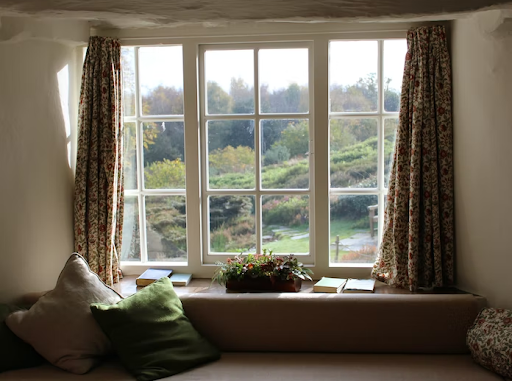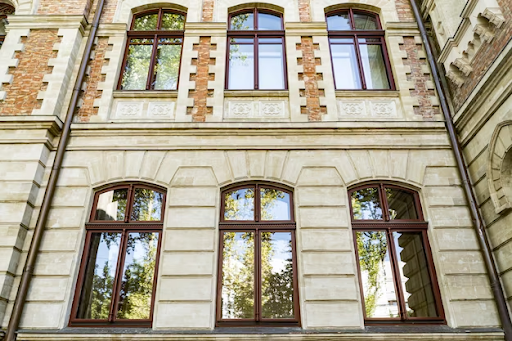
Single-glazed windows are no longer a common necessity for most people. There is a clear reason for that. One reason why is that up to 65% of the heat from home can escape via a single-glaze and into the outside environment. And that’s totally unsustainable, both in environmental concerns and home heating costs.
Since double glazing necessitates less energy to sustain the heat inside the home, they are a popular choice nowadays. These days, you may take it a step further and build it to add more glass layers to your home’s insulation.
What Does it Mean By Double Glazing?
A window is referred to as “double glazing” if it has two glass panes. A glass element that is insulated is encased in aluminium, and timber makes up the majority of the window. Seven out of ten homes in the UK today have double-glazing.
The capability of the room to maintain the heat while blocking the entry of cold air increases energy efficiency. Preventing unwanted sound also improves general home security and stops outside noise from entering the building, which is an additional benefit.
Why Choose Double Glazing?

Windows that are double-glazed have a variety of benefits for your house. You may reap the advantages that are significant to you by selecting the appropriate option for your home.
Decrease Fading
The light that harms people’s skin and fades carpets and furniture does so by chemically altering the characteristics of the colour of the object. Radiant heat from the sunlight damages furniture by causing thermal damage that causes fading.
The quantity of UV light in your house and its damage-causing effects are decreased by double glazing. By decreasing the amount of heat emitted in the double glazing, the mixture of various glass types can further prevent fading.
Eliminate Outside Noise
Your pleasure and health may suffer if you hear unwanted sounds outside of your property. Your glass’s insulation is enhanced by double glazing. It reduces noise entering space from the outside by attenuating acoustic signals as they go through the glass.
Manage Condensation
When warm air is chilled, condensation develops. When damp air condenses on glass, as it does when a window does, it can create large amounts of water as well as mould and mildew. Moreover, when a window has only one pane of glass, condensation forms quickly because the cool external temperature is easily transferred inside.
Conclusion
Your home may lose as much as fifty per cent of its heat via its windows, even if it is adequately insulated. More than just germs and mould can result from condensation. It may enhance the possibility of the viruses, fungi, and mites that trigger allergies and respiratory infections.
By considering this to your window, you may make your home’s temperature more stable, lessen temperature changes, and make it simpler to maintain a warm, comfortable temperature without any cold spots.

Leave a Reply